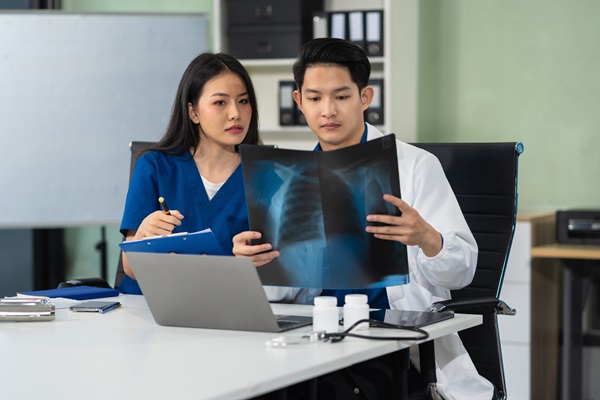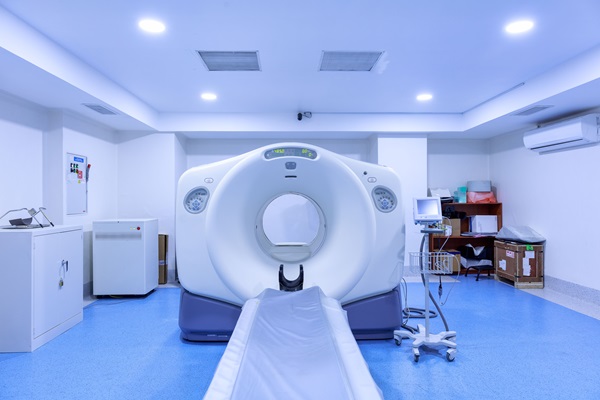Visit an Urgent Care if You Have These Signs of a Sinus Infection

Wondering whether your sinus infection requires a visit to urgent care? Read on to learn more. A minor sinus infection might not require immediate medical attention, but when the symptoms of a more severe sinus infection become intolerable or persist for an extended period, medical attention may be necessary to treat the sinus infection's underlying cause.
If you have a sinus infection, you need to know precisely what to do. Monitor the symptoms of a sinus infection. If the symptoms worsen or show no signs of recovery after a week, make an appointment with an urgent care center. The medical professionals there can treat the sinus infection and help you recover.
Symptoms of a sinus infection
Sinusitis, the medical term for an inflammation of the sinuses, occurs when the nasal passages become inflamed because of an infection or allergy. Sinus infections are categorized as either acute or chronic. Asthma, allergies, and the common cold may induce acute sinus irritation. There are several variables to consider while diagnosing and treating a chronic sinus infection.
A bacterial infection or a viral infection is the most common cause of an acute infection. Even though they seem identical, the therapy for a bacterial infection differs from that for viral infections. Therefore, a correct diagnosis is critical. Sinusitis-causing bacterial infections are far less common than sinusitis-causing viral infections.
The symptoms of a sinus infection vary depending on the degree of the infection and the origin and kind of infection. However, there are a few more frequent symptoms that apply to almost every sinus infection, including:
- Congestion of the nasal passages
- Runny nose
- Facial pain
- Headache
- Cough
- Sinus pressure
Nasal congestion and a runny nose are the first signs of a sinus infection. The facial discomfort and headache may vary from moderate to severe. These symptoms will not stop without addressing the underlying problem or allowing the body to fight it off on its own, although medical treatment may accelerate the healing process.
Sinus infections: When to seek urgent care
There is no need to seek medical attention for most mild sinus infections; however, urgent treatment is needed for more serious sinus infections.
If sinus infection symptoms increase or last for more than a few days, patients should contact a doctor immediately. If breathing becomes difficult due to a sinus infection, make an appointment with your doctor immediately to clean the sinuses. Medical assistance is necessary if the symptoms do not improve after a week.
If a child gets a sinus infection, patients should seek immediate medical attention since their body is not strong enough to counter the infection rapidly. It is often more difficult to determine what is causing sinus irritation in children. An unknown allergy might be the root cause of the symptoms in certain circumstances.
The doctor at the urgent care center will perform a comprehensive examination of the symptoms and the documentation of any pertinent information needed to establish a correct diagnosis during an appointment. It helps to list symptoms, current medications, and any allergies the patient may have.
The medical professional will probably ask several questions to learn more about the extent of the infection, including medical history, the severity of the symptoms, and any factors that may have contributed to the sinus infection. Treatment will then be prescribed based on the answers to these and other questions.
Sinus infection treatment options
Antibiotics are the most effective treatment approach if a bacterial infection is the root cause of the sinus infection. On the other hand, antibiotics are ineffective against viral infections. A common cold, for example, is more likely to be treated with antiviral medications than with antibacterial ones.
Allergies are a common cause of sinus inflammation, a condition where the immune system rejects something it perceives as dangerous. A steroid spray might be recommended if allergies are found to be causing nasal irritation. The nasal spray makes sinus inflammation more tolerable.
Patients can take over-the-counter drugs to alleviate the symptoms of a sinus infection. These include antihistamines, decongestants, nasal sprays, pain relievers, and steroids.
The bottom line
Practicing a healthy lifestyle, such as washing your hands often, is important to avoid a sinus infection. Get a flu vaccination every year before flu season starts for additional protection. Get an allergy shot when necessary and limit your outdoor time during allergy season. If you notice any sinus infection symptoms that are worsening or failing to decrease over time, visit an urgent care center right away.
Call us today at (832) 941-1894 for more information from Texas Urgent Care & Imaging Center.
Check out what others are saying about our services on Yelp: Read our Yelp reviews.
Recent Posts
X-rays are popular tools medical professionals use to diagnose a wide range of health conditions quickly and safely. They allow these professionals to see inside the body without invasive procedures, making them invaluable in urgent and primary care settings. Whether identifying fractures, monitoring chronic conditions, or detecting abnormalities, X-rays are critical in ensuring timely and…
A CT scan, or computed tomography scan, is a diagnostic tool that provides detailed images of the body’s internal structures. This non-invasive procedure helps medical professionals diagnose and monitor various conditions, from injuries to chronic illnesses. Knowing what to expect during a CT scan can ease concerns and prepare patients for a smooth experience.A CT…
If you work in public transportation, you may need to have a DOT drug screening. The Department of Transportation (DOT) regulates this test and requires it for you. You might be wondering what this test is like. Keep reading to learn more.Congress passed the Omnibus Transportation Employee Testing Act in 1991. Congress knew that the…
Walk-in clinic provide convenient, accessible health care for non-emergency medical needs, making it an ideal choice when immediate attention is necessary. Understanding when to visit a clinic can help patients save time, avoid unnecessary trips to the emergency room, and receive quality care for their health concerns. These clinics handle various issues, offering fast, professional…


